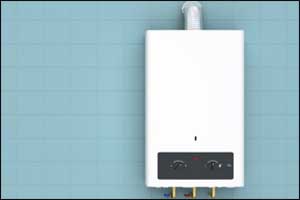- Home
- Editorial
- News
- Practice Guidelines
- Anesthesiology Guidelines
- Cancer Guidelines
- Cardiac Sciences Guidelines
- Critical Care Guidelines
- Dentistry Guidelines
- Dermatology Guidelines
- Diabetes and Endo Guidelines
- Diagnostics Guidelines
- ENT Guidelines
- Featured Practice Guidelines
- Gastroenterology Guidelines
- Geriatrics Guidelines
- Medicine Guidelines
- Nephrology Guidelines
- Neurosciences Guidelines
- Obs and Gynae Guidelines
- Ophthalmology Guidelines
- Orthopaedics Guidelines
- Paediatrics Guidelines
- Psychiatry Guidelines
- Pulmonology Guidelines
- Radiology Guidelines
- Surgery Guidelines
- Urology Guidelines
Fortis Doctors Encountering Gas Geyser Syndrome in youngsters

A 25yr old male was rushed to the Emergency Room at Fortis Hospital, Mulund after experiencing dizziness and blackouts while having a bath at home. He was able to carry himself out after a prolonged period of time and seek medical intervention. Medics at the hospital also noted that he experienced a bout of loose stools. Dr. Sandeep Gore, Consultant, and Head, Department of Emergency Medicine, Fortis Hospital, Mulund, signals that there has been a rise in cases of similar symptoms and nature, which is known to be as the ‘Gas Geyser Syndrome’.
Gas Geyser Syndrome has been noted in those individuals who spend long durations in the bathroom and is caused due to CO2 poisoning, caused due to emissions from Gas Geysers that are fit in bathrooms. Most patients diagnosed with Gas Geyser Syndrome were between the age group of 20-40yrs and were recorded to have had a prolonged bath, for more than 30mins-45mins. Symptoms of the syndrome include dizziness, seizures, unconsciousness, and blackouts. Prolonged exposure can cause a person to slip into a coma or lead to a cardiac arrest due to CO2 poisoning. Once rushed to the ER, a ‘Blood-Gas Analysis’ and other general tests are run to rule out other causes. These cases are treated with oxygen therapy, primarily by ER Physicians and Neurologists. However, if not treated in time and appropriately the condition can be life-threatening or lead to long-term side effects.It is advisable to rush to the ER once exposed for a prolonged period as it can be fatal.
Speaking about the condition, Dr. Sandeep Gore, Consultant, and Head, Department of Emergency Medicine, Fortis Hospital, Mulund, says, “There has been a steady rise in the number of cases that we have seen in the last two years; the majority of these belonging to the age group of 20-40yr olds. The symptoms if not diagnosed and treated in a timely manner and correctly can lead to long-term side effects like epilepsy, neurological implications and cognitive deficits which affect memory, learning capabilities and perception. We have had a case of a 25yr old woman who developed epilepsy and a 31yr old woman who developed Parkinson’s disease due to prolonged exposure in such circumstances; they are now unable to live a normal life”.
Gas geysers are used domestically to supply hot water in bathrooms and conditions. Its usage is often in high demand because of its economic value, its installation is cheap and no electricity is required. These LPG gas geysers if not placed in an adequately ventilated area, combust, and lead to an accumulation of Carbon Monoxide and Nitrogen Dioxide. If a person comes in contact with these gases, it can have hazardous and sometimes fatal effects. The need of the hour to help extricate the chances of these fatalities is to amend laws and regulations in order to control the usage of gas geysers. If used, these geysers should be fitted outside bathrooms; sufficient ventilation by fitting exhaust fans must be arranged.
Concluding on the issue at hand, Dr. Gore adds, “This simple household appliance if not used correctly and the necessary precautions have not been set in place can be very dangerous and can lead to disabling neurological conditions. Many people are not aware of this condition, doctors and the common man alike. Ensuring sufficient ventilation in bathrooms is the basic step to avoid these circumstances. The symptoms of this condition can easily go undiagnosed and the patient could be treated for a non-existent medical condition”.

Disclaimer: This site is primarily intended for healthcare professionals. Any content/information on this website does not replace the advice of medical and/or health professionals and should not be construed as medical/diagnostic advice/endorsement or prescription. Use of this site is subject to our terms of use, privacy policy, advertisement policy. © 2020 Minerva Medical Treatment Pvt Ltd